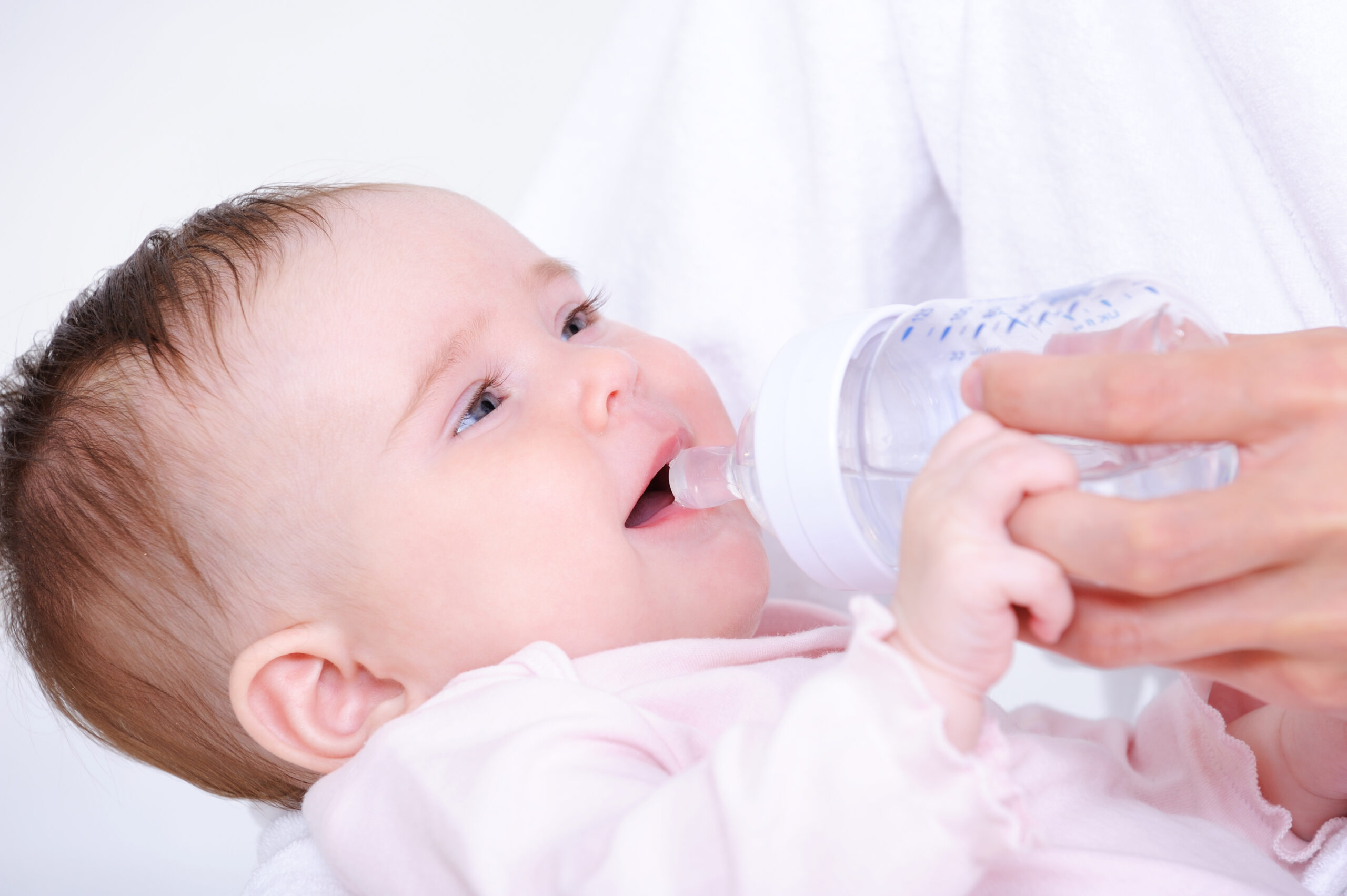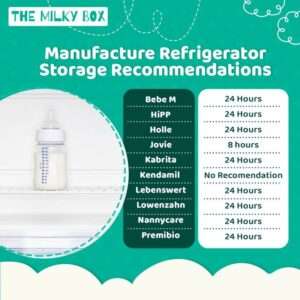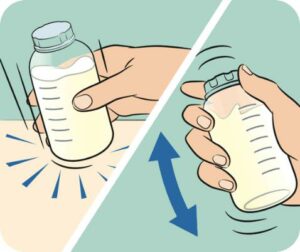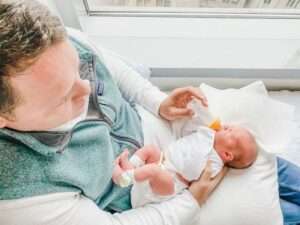How to Safely Prepare Baby Formula (Dr. Maryum, Dr. Owais Rafiq)
- Dr Owais Rafiq
- September 28, 2023
- 8:52 pm

Preparing baby formula
Preparing baby formula with water is a crucial task that requires proper attention to ensure your baby’s health and safety. This informative blog post will guide you through the process, covering all aspects of safely preparing baby formula with water to provide the best nutrition for your little one.
Gather Your Supplies

Before you start, make sure you have all the necessary supplies. Here’s a quick checklist:
- Baby formula (powdered, concentrated liquid, or ready-to-feed)
- Clean water (bottled or tap, depending on local guidelines)
- Sterilized baby bottles and nipples
- Measuring scoop (usually included with the formula)
- Cleaning supplies (soap, water, and a bottle brush)
- A clean surface to prepare the formula
- A thermometer (if using heated water)
Choose Safe Water Sources:
Selecting the right water source is essential. Use tap water from a municipal source that meets safety standards or consider using bottled water labeled as appropriate for infant formula preparation.

Wash Hands and Clean Utensils:
Before handling baby formula or water, thoroughly wash your hands with soap and water. Additionally, ensure all utensils used for formula preparation, such as bottles, nipples, and measuring tools, are properly cleaned and sterilized. This step helps prevent the introduction of harmful bacteria or contaminants.

Boil Water for Infants:
For newborns up to three months old, it’s recommended to boil tap water before using it to prepare formula. Boil water for at least one minute and let it cool down before mixing it with formula powder. Boiling kills any potential pathogens that may be present in the water, ensuring its safety for your baby’s consumption. Once your baby reaches three months of age, you may use pre-boiled, cooled water without boiling.

Measure Water and Formula Accurately:
Follow the manufacturer’s instructions on the formula packaging to determine the correct water-to-formula ratio. Use clean, sterilized measuring tools to ensure accurate measurements. Adding too little or too much water can affect the formula’s concentration and may not provide the necessary nutrition for your baby. Accuracy is key in providing balanced nutrition for their growth and development.

Mix Formula and Water Carefully:
Add the appropriate amount of formula powder to the measured water according to the instructions. A liquid concentrated formula should also be prepared according to the instructions provided on the packaging, ensuring proper mixing and accurate dilution.
Seal the bottle and shake it gently to mix the formula and water thoroughly. Avoid vigorously shaking, as it can introduce excessive air bubbles. Insufficient mixing can result in clumps or inconsistent formula concentration, while excessive shaking can affect the consistency and introduce excess air.

Check the Formula Temperature
Before feeding, ensure the prepared formula is at a safe temperature. Test a few drops on the inside of your wrist to ensure it is lukewarm, not too hot or cold. If the formula feels too hot, let it cool down before feeding. Never microwave formula, as it can create uneven heat spots and cause burns to your baby’s mouth.

Discard Unused Formula:
Once your baby has finished feeding, discard any unused formula left in the bottle. Bacteria from your baby’s mouth can contaminate the formula, so it’s important not to save and reuse any leftover portions. Prepare fresh formula for each feeding to maintain its safety and quality.

Safety Tips
- Always consult your pediatrician or healthcare provider if you’re unsure about the type of formula that is best for your baby.
- Do not add extra formula powder to your baby’s bottle, as this can lead to dehydration and may overload the kidneys.
- Be cautious with homemade formulas, as they can pose health risks if not prepared correctly.
Conclusion:
Safely preparing baby formula with water is a vital responsibility for parents. By choosing safe water sources, practicing proper hygiene, accurately measuring water and formula, carefully mixing, checking temperature, and discarding unused formula, you can ensure your baby receives a safe and nutritious feeding experience. Always follow guidelines and consult with your pediatrician for specific recommendations this is how to safely prepare baby formula with water.
Dr Owais Rafiq
Subscribe to Dr Owais YouTube channel
For parenting advice, child health, symptoms, causes and treatment of illness in children.





